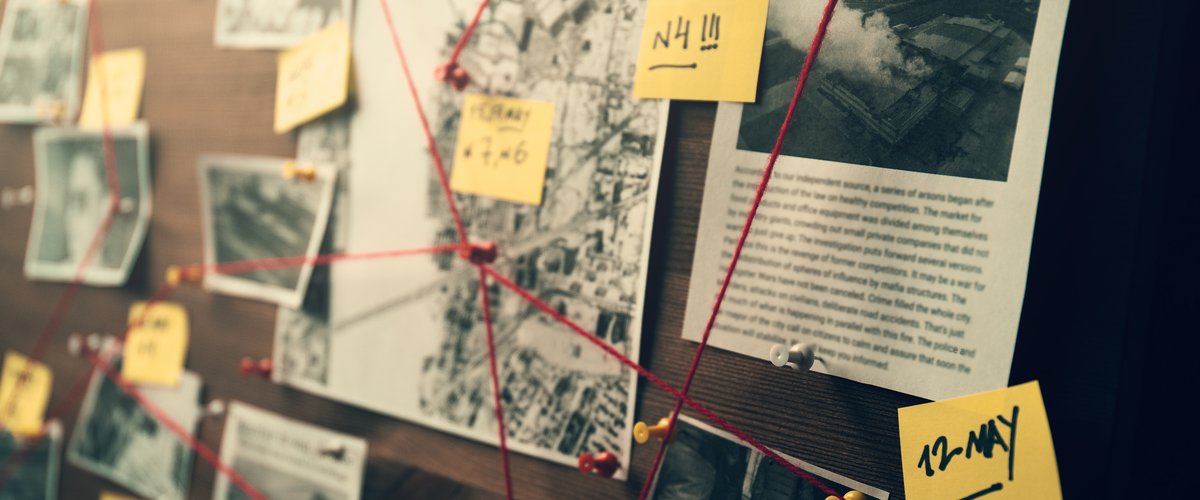- DURATION 60 mins
Event Description
Criminals are “other people.” But: have you ever eaten items while supermarket shopping, exceeded the speed limit, dropped litter in the street? These are crimes, but rarely would we be confronted over these actions. Many people would argue that these are small and insignificant issues. Indeed, surely someone who stole food would probably be someone who is hungry. Between 1788 and 1868, more than 162,000 convicts were transported from the UK to Australia for what we would now probably consider very petty crimes. Morality therefore seems to be on a continuum. However, the interplay between labelling, ethics and the law emerges. Why do we find criminality intriguing? Many of us watch detective and true crime stories on the television. If you had criminals in your tree, would you reveal that information? How much do/ would you reveal about people labelled as criminals on your tree? All/ some/ none? Is there a difference between the information you have discovered and is in your files, and that which is revealed in an online tree?
Compiling your family history has changed radically since the use of direct-to-consumer DNA tests. We now have faster access to biological relatives’ and ancestors’ information online. Data available in GEDmatch can often identify a 3rd cousin or closer in 90% of the population. Investigative genetic genealogy is the emerging practice of using genetic information from direct-to-consumer companies for identifying suspects or victims in criminal cases. If you DNA was a key factor in apprehending a serious criminal, would you feel pleased or guilty? Where does loyalty to a relative start/ stop? This session will conclude by discussing some of the ethical dilemmas emerging from finding criminals in your family.
- Duration: 60 mins
- Online Zoom event: Join from your computer, phone or tablet (no replay available)
Dr. Penny Walters has been a University lecturer for 35 years, currently teaching Masters’ Business studies at Bath Spa University, England, and previously Psychology and Ethics. Penny's interest in genealogy started after having her first baby and then wondering about her biological parents, as she was adopted. Penny has six mixed race children, who have all enjoyed discovering their roots through DNA ethnicity results. Penny lectures internationally in-person, writes articles, and is sought after for a wide range of webinar topics. Penny has authored the books: 'Ethical Dilemmas in Genealogy' (2019) and ‘The Psychology of Searching’ (2020), available on Amazon in paperback or on kindle www.searchmypast.co.uk
Preparing for the Event
For the best experience, you will need to have Zoom downloaded onto your computer. Please ensure you're connected to broadband/wifi rather than using your mobile phone connection (3G/4G).
We also recommend that pets are either calmly sitting on your lap or in another room, and any refreshments you may require are within your reach!
Resources
There are no criminals in my family has supplementary learning materials provided by the event host. Once you book an event, you will get access to these resources.
More Information
What if I can’t make the event?
If a recording’s available for the event, you can still register for it and we will send you an email with a link to a recording shortly after it ends.
Will my camera be on and will I be visible to the other people?
Your camera and microphone does not need to be on for you to enjoy the event. The choice about whether to do this is completely yours.
How do I watch the live event?
Rest Less events are hosted on Zoom, a computer application that allows you to attend online events just by clicking a link. For detailed instructions, please go to our "FAQ" page, which you can find a link to in the nav bar at the top of the page.
How do I sign-up for and access the recording? (Recorded events only)
Book the event as normal (as if you are attending live). After the event ends you will automatically receive a post-event email with a link to the recording, as long as the event was recorded. You do not need to do anything else and there is no separate booking process for recordings only. Please note it can take up to 24 hours for Zoom to process recordings.

